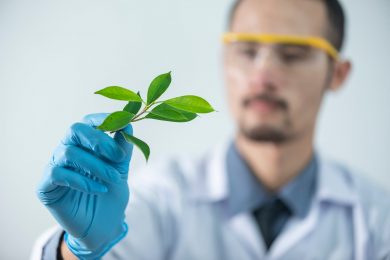
Social sustainability – enhancing and preserving the wellbeing of present and future generations
The current world population of 7.3 billion is expected to reach 8.5 billion by 2030, and 9.7 billion in 2050. Today, there are approximately 650 million people over the age of 60 living on this planet. By year 2050 this figure is expected to almost quadruple to over 2 billion. While the increase in the percentage of older people over the next decades represents a global trend, developing countries are expected to experience even more dramatic changes in age composition. For some developing countries, like Thailand, the rate of increase in the older population is expected to be seven to eight times higher than in industrialised countries like the UK and Sweden, according to United Nations estimates. In Asia, the population will be transformed from having 11% to 12% of people over 60 years old today to more than 25% by 2050. Asia, which has seen greater declines in fertility, has smaller percentages of children (24%) and youth (16%). These challenges are becoming increasingly important in light of the ageing of the Earth’s population – the most important demographic shift in the history of humankind.
These demographic changes are affecting every country’s governments, institutions, and individuals. They are putting pressure on pension funds and healthcare systems and are having economic consequences that affect economic growth, savings, and investments.
 They are also affecting families and raises issues such as elderly care giving, family composition, living arrangements, and quality of life in old age. One cannot address issues of quality of life of present and future generations within the constraints of scarce resources without taking the human agency into account. People need to assume a greater responsibility for their own wellbeing and the wellbeing of future generations. Accomplishing such a daunting task requires the understanding of people as consumers of increasingly scarce resources, educating and motivating them to behave in a way that deters overconsumption and enhances their wellbeing and that of future generations over a longer lifespan.
They are also affecting families and raises issues such as elderly care giving, family composition, living arrangements, and quality of life in old age. One cannot address issues of quality of life of present and future generations within the constraints of scarce resources without taking the human agency into account. People need to assume a greater responsibility for their own wellbeing and the wellbeing of future generations. Accomplishing such a daunting task requires the understanding of people as consumers of increasingly scarce resources, educating and motivating them to behave in a way that deters overconsumption and enhances their wellbeing and that of future generations over a longer lifespan.
Research has consistently indicated that health and financial independence are the two most important factors that contribute to a person’s sense of wellbeing, especially in later stages of life. As people’s life expectancy increases, a larger percentage of them will be living with chronic conditions that deter one’s physical independence. Preventive healthcare habits allow an older person to function independently, without the need of caregivers who are becoming smaller in numbers due to changing demographics and social values (e.g., decrease in multi-generational living arrangements). The decreasing numbers of future caregivers available to ageing persons, increasing costs of healthcare due to increased life expectancy, inadequate financial resources for longer life expectancies, and the ageing person’s need for living well in later years of life require financial habits throughout life that would provide for a more enhanced quality of life.

We utilised six focus groups to gain insights into the issues at hand, followed by two large scale surveys involving samples of more than 900 Thai adult consumers aged 20 and older, grouped by those 20-40, 41-60, and over 60. Different life events may occur over time, which can lead to behavioural changes, due to stress and coping. Young people may exercise for fun and sport, but then find themselves too busy with work and raising a family, only later to be encouraged to resume by a doctor after a health scare. With regard to preventive healthcare, our research has attempted to uncover factors that contribute to the onset and continuity of three forms of preventive healthcare practices: exercising, taking vitamins and mineral supplements, and having regular physical check-ups. Although motives for the onset of these behaviours likely differ across the lifespan, our findings generally highlight the importance of initiating these behaviours early in life. The earlier in life people start engaging in such preventive healthcare behaviours, the greater the likelihood they will continue engaging in such behaviours later in life.
With respect to financial habits and financial wellbeing, our research show that people in or approaching retirement are not adequately prepared financially. Inadequate preparation appears to be the result of a lack of financial knowledge and using effective financial instruments for accomplishing several financial goals. Our findings also underscore the importance of starting a savings for retirement early in life. The longer a behaviour has been undertaken, the more likely it is to continue – whether exercising or saving (but also in terms of smoking or drinking). The bottom line is that Thai people are saving too little, too late, and are not paying enough attention to their health, which may have major repercussions later in life. Thai households are increasingly taking on debt, making it wise to develop a negative attitude towards debt while at the same time encouraging more strategic savings behaviours. We rely on the findings of these studies to recommend intervention programmes and educational campaigns to help the general public develop and modify behaviours that would enhance physical and financial wellbeing throughout life.
If anyone would like to read the full report with the findings from both studies, it can be downloaded at:
https://www.cm.mahidol.ac.th/research/index.php/recent-research-outputs



